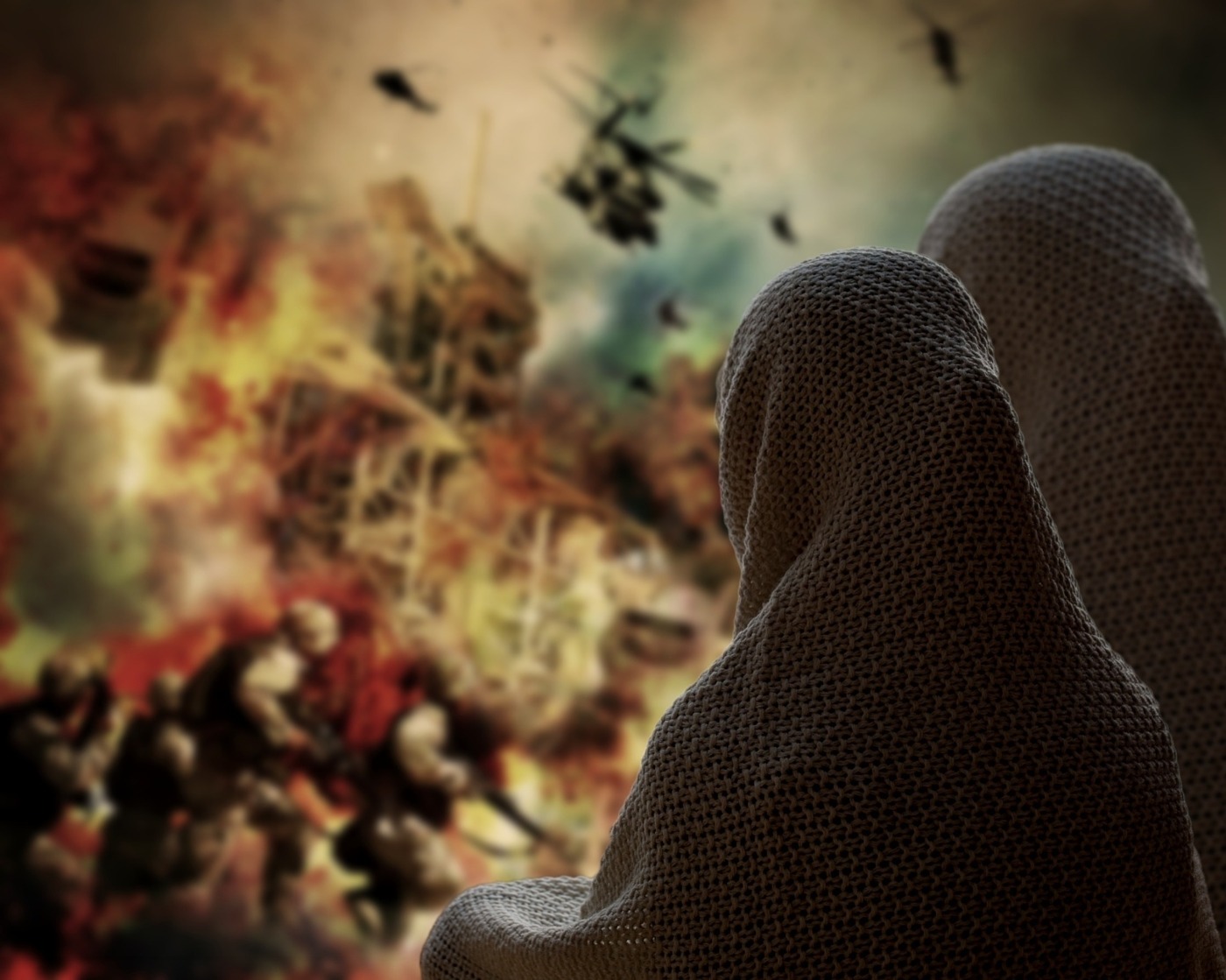There is hope in the horror of ‘For Sama’
“I‘ll keep filming. It gives me a reason to be here”, says a pregnant Waad al-Kateab as she fights to survive in a war-torn Aleppo. It’s difficult not to question the worth of this reasoning as For Sama descends into an ever-worsening exposé of the female experience of the Syrian conflict. Waad’s handheld camera captures the powerful moments of a woman’s journey through love, marriage and pregnancy amidst crumbling buildings and frenzied gunfire, documenting the ongoing struggle between survival and wholehearted faith in the cause. It’s a predictably tough, necessary watch, but also one that proves a beautiful example of the humanity and compassion associated with family.
What makes the film so affecting is its barefaced realism. For Sama is punctuated by key stages in Waad’s life as she attempts to maintain normality in terrifyingly abnormal circumstances. This isn’t so much a story as it is an exercise in perspective; a raw, unfiltered documentary in a time where the genre is becoming increasingly theatrical (The Disappearance of Madeleine McCann, for comparison, has 8 episodes. Eight.) Emmy award-winning filmmaker Edward Watts (Dispatches) expertly pieces together the most poignant and compelling elements of Waad’s experience to craft a feature-length picture that refuses to hold back. In one scene, an unborn baby is pulled from a wounded mother, in another, two boys weep over the body of their dead brother. It truly is a task to sit through, but the footage demands your attention, such is the importance of exposing the realities of a conflict which continues to touch so many.
This isn’t so much a story as it is an exercise in perspective; a raw, unfiltered documentary in a time where the genre is becoming increasingly theatrical
When Sama (Waad’s first child, hence the title) is finally born – by which time we’ve learnt of the grim fate that awaits many children who have stayed in Aleppo – Waad and her new family are living in the dusty confines of a makeshift hospital. “We do our best to make it feel like home”, she says, moments before the room is rocked by a fresh barrage of shelling, which steals the life of another innocent child. Waad’s husband, Hamza, is one of just 32 doctors in the eastern region of the city; by the end of the documentary, their hospital is the last in the area. They stay because nobody else will. Thousands have fled the city as conditions show no signs of improvement, yet those left behind need medical help more than ever. In the final 20 days of the hospital, Hamza and his team treat 6000 people and perform 890 operations.
But amongst all the chaos, death and destruction of a war that has raged since 2011, For Sama shows us that we are at our most human in the most inhuman circumstances – we are forced to value and protect what really matters when its existence is at risk every day. This is what makes Waad’s relationship with her daughter so moving. Sama’s name is mentioned hundreds of times as mother reminds daughter that this is all for her. As Sama is introduced to the world, Waad’s focus is on keeping her alive. By the end of the documentary, it is mother that relies on daughter to keep going, and it’s this stirring bond between parent and child keeps that keeps this piece of POV filmmaking from being 90 mins of totally harrowing cinema.
For Sama shows us that we are at our most human in the most inhuman circumstances – we are forced to value and protect what really matters when its existence is at risk every day
In his review for The Times, film critic Kevin Maher described For Sama as “too much, too painful, too harrowing”. He’s right, but it’s a pain that needs to be seen, heard and felt by audiences across the world. That’s why Waad kept filming.

Comments